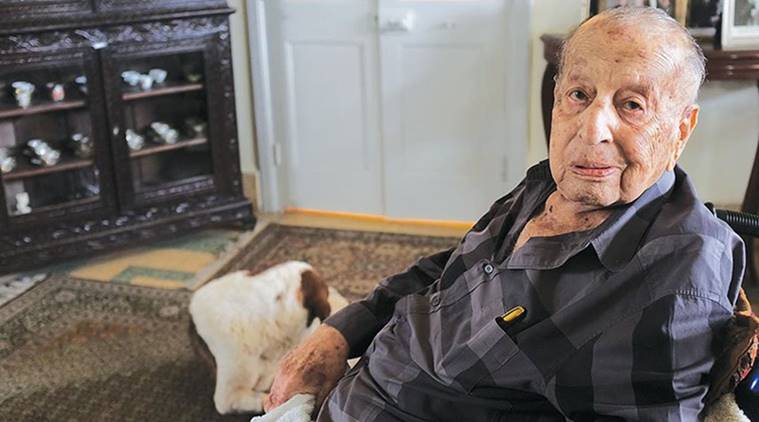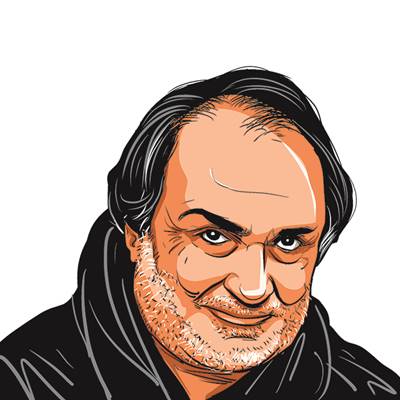Diplomat who made friends
Ambassador Marker helmed Pakistan’s embassies at a tough time in its history.

Marker first became known as a cricket commentator, together with Omar Qureshi, in the early 1960s. (Source: Geo.tv)
Although he was confined to his house in Karachi the last few years, Jamsheed Kaikobad Ardeshir Marker’s demise on June 21 has shaken me deeply. He was kind to me when I was greatly in need of generosity: I was a student at the Moscow State University in 1971, the year of an upheaval in Pakistan and not much kindness flowed in my direction from the embassy at Sadovo-Kudrinskaya.
Marker was an ambassador from outside the diplomatic services and therefore retained his personality. He was his own man and as a result more effective as a diplomat and ended up being appreciated internationally when Pakistan was creeping into isolationism after the fall of East Pakistan.
His Moscow tenure was tough because the Kremlin was squarely on the side of India and Pakistan was losing support of the US and the world for what it did in its eastern province after the 1970 election. Instead of retreating into his shell, Marker became active among the ambassadors in Moscow and faced up to the Kremlin as it facilitated the breakup of Pakistan’s embassy in the capital of the then Soviet Union. When he left Moscow, the Soviet bureaucracy decided to make him a permanent citizen of Moscow. The Soviet farewell was so touching that it brought tears to my eyes — by then, I was a third secretary at the Pakistan embassy in Moscow.
Jamsheed Kaikobad Ardeshir Marker (1922-2018) was an achiever. His book, Quiet Diplomacy: Memoirs of an Ambassador of Pakistan tells the story of a remarkably successful ambassador representing a remarkably unsuccessful country. It would not be very wrong to say that Pakistan recognised him after realising how greatly admired he was by the international community. In 1997, the then UN Secretary General Kofi Annan got him to head the campaign to persuade Indonesia to do the legal thing by letting East Timor become independent. After the successful conclusion of his mission, Marker wrote, East Timor: A Memoir of the Negotiations for Independence (2003).
Born into a distinguished Parsi family of Quetta, Marker first became known as a cricket commentator, together with Omar Qureshi, in the early 1960s. His diplomatic career began in 1964 when the then Foreign Secretary Aziz Ahmed, under President Ayub Khan, offered him an ambassador’s post in Africa. Marker chose Ghana because he thought he would witness and get to know Kwame Nkrumah, the new pan-African leader with charisma and promise. His description of Nkrumah would fit a lot of other socialist leaders of Africa, who Marker got to observe.
Marker laid down his understanding of Pakistan’s early crisis when he surveyed the foreign office, he joined with Z A Bhutto as Foreign Minister: “My observation was that the policy orientation of the foreign ministry was more than a few points to the left of the centre, and that it was being pushed further in that direction by Bhutto, despite Ayub’s reluctance and disinclination, and notwithstanding the undisguised suspicion of the Americans”. Bhutto took over the country after the 1970 elections and nationalised the economy, declaring socialism as his political ideology.
After Ghana, Marker was posted in Romania. And after Romania, he was given his first major mission in Moscow in 1969. The following year, elections led people of East Pakistan to vote for independence. The world reluctantly sided with the people of Bangladesh; Moscow sided with India. Kissinger told Marker: “Everywhere else in the world elections help to solve problems; in Pakistan they seem to create them”.
By now, Marker’s nose for character was quite developed. He thought East Pakistan fell because of three men: “Mujibur Rehman, Z A Bhutto, and Yahya Khan, the first two because the compulsions of their fascist character precluded compromise, and sharing of power implicit in a democratic polity. And, the third because he completely lost his political acumen, and committed strategic blunders of the highest magnitude”.
After being posted in Tokyo, Geneva and Germany, Marker found himself in France in 1982. It was during this tenure that Shahnawaz Bhutto was found dead in Nice. Marker believed that his death was a family affair rather than a plot hatched in Islamabad.
Marker was ambassador to the US from 1986 to 1988 and to the UN till 1994. Writing in The New York Times, Robert Pear had this to say about him in 1989: “Jamsheed KA Marker the Ambassador of Pakistan is described as tough, shrewd and cultivated by State Department officials and members of Congress. Of all the diplomats in Washington, few work so intimately with the Reagan Administration as Mr Marker”.
The writer is consulting editor, Newsweek Pakistan
For all the latest Opinion News, download Indian Express App
More From Khaled Ahmed
- Ideology vs StateWrangling politicians of Pakistan call themselves ‘ideological’. What could they mean? ..
- Remembering Charanjit SinghCharanjit Singh was killed by those fed on an ideology that demonises non-Muslims in Pakistan ..
- Unhappiest In South AsiaThe unhappiness rankings need to take note: The lack of joy in Pakistan is palpable ..







































No hay comentarios:
Publicar un comentario